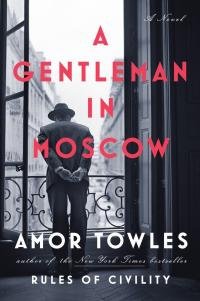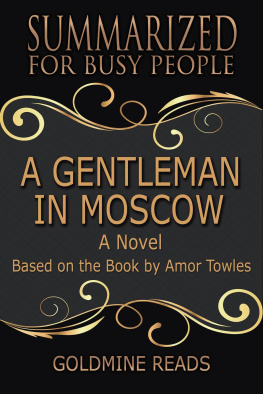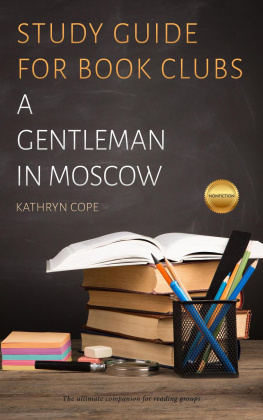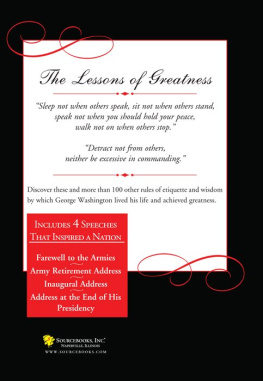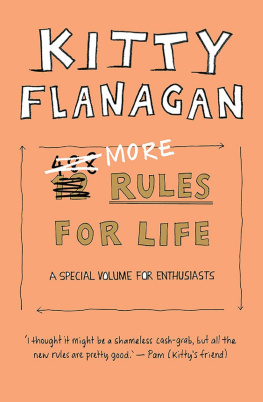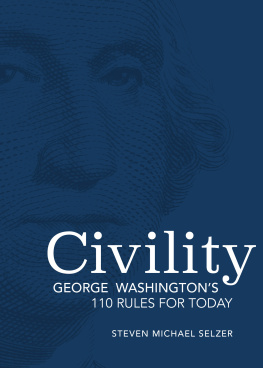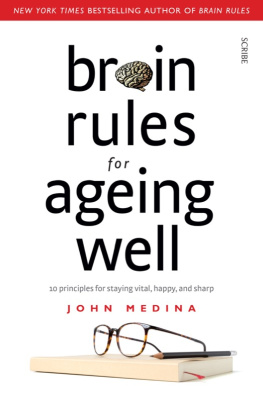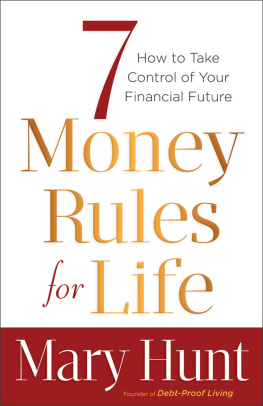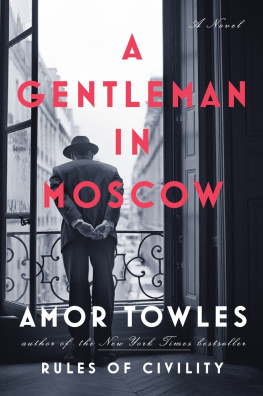ALSO BY AMOR TOWLES
Rules of Civility
Contents
Also by Amor Towles
Title Page
Copyright
Dedication
Map
Epigraph
BOOK ONE
1922: An Ambassador
An Anglican Ashore
An Appointment
An Acquaintanceship
Anyway . . .
Around and About
An Assembly
Archeologies
Advent
BOOK TWO
1923: An Actress, an Apparition, an Apiary
Addendum
1924: Anonymity
1926: Adieu
BOOK THREE
1930
Arachnes Art
An Afternoon Assignation
An Alliance
Absinthe
Addendum
1938: An Arrival
Adjustments
Ascending, Alighting
Addendum
1946
Antics, Antitheses, an Accident
Addendum
BOOK FOUR
1950: Adagio, Andante, Allegro
1952: America
1953: Apostles and Apostates
BOOK FIVE
1954: Applause and Acclaim
Achilles Agonistes
Arrivederci
Adulthood
An Announcement
Anecdotes
An Association
Antagonists at Arms (And an Absolution)
Apotheoses
AFTERWORD
Afterwards . . .
And Anon
For Stokley and Esm
How well I remember
When it came as a visitor on foot
And dwelt a while amongst us
A melody in the semblance of a mountain cat.
Well, where is our purpose now?
Like so many questions
I answer this one
With the eye-averted peeling of a pear.
With a bow I bid goodnight
And pass through terrace doors
Into the simple splendors
Of another temperate spring;
But this much I know:
It is not lost among the autumn leaves on Peters Square.
It is not among the ashes in the Athenaeum ash cans.
It is not inside the blue pagodas of your fine Chinoiserie.
It is not in Vronskys saddlebags;
Not in Sonnet XXX, stanza one;
Not on twenty-seven red . . .
Where Is It Now? (Lines 119)
Count Alexander Ilyich Rostov
1913
21 June 1922
APPEARANCE OF COUNT ALEXANDER ILYICH ROSTOV
BEFORE THE EMERGENCY COMMITTEE OF THE PEOPLES COMMISSARIAT FOR INTERNAL AFFAIRS
Presiding: Comrades V. A. Ignatov, M. S. Zakovsky, A. N. Kosarev
Prosecuting: A. Y. Vyshinsky
Prosecutor Vyshinsky: State your name.
Rostov: Count Alexander Ilyich Rostov, recipient of the Order of Saint Andrew, member of the Jockey Club, Master of the Hunt.
Vyshinsky: You may have your titles; they are of no use to anyone else. But for the record, are you not Alexander Rostov, born in St. Petersburg, 24 October 1889?
Rostov: I am he.
Vyshinsky: Before we begin, I must say, I do not think that I have ever seen a jacket festooned with so many buttons.
Rostov: Thank you.
Vyshinsky: It was not meant as a compliment.
Rostov: In that case, I demand satisfaction on the field of honor.
[Laughter.]
Secretary Ignatov: Silence in the gallery.
Vyshinsky: What is your current address?
Rostov: Suite 317 at the Hotel Metropol, Moscow.
Vyshinsky: How long have you lived there?
Rostov: I have been in residence since the fifth of September 1918. Just under four years.
Vyshinsky: And your occupation?
Rostov: It is not the business of gentlemen to have occupations.
Vyshinsky: Very well then. How do you spend your time?
Rostov: Dining, discussing. Reading, reflecting. The usual rigmarole.
Vyshinsky: And you write poetry?
Rostov: I have been known to fence with a quill.
Vyshinsky: [Holding up a pamphlet] Are you the author of this long poem of 1913: Where Is It Now?
Rostov: It has been attributed to me.
Vyshinsky: Why did you write the poem?
Rostov: It demanded to be written. I simply happened to be sitting at the particular desk on the particular morning when it chose to make its demands.
Vyshinsky: And where was that exactly?
Rostov: In the south parlor at Idlehour.
Vyshinsky: Idlehour?
Rostov: The Rostov estate in Nizhny Novgorod.
Vyshinsky: Ah, yes. Of course. How apt. But let us return our attention to your poem. Coming as it didin the more subdued years after the failed revolt of 1905many considered it a call to action. Would you agree with that assessment?
Rostov: All poetry is a call to action.
Vyshinsky: [Checking notes] And it was in the spring of the following year that you left Russia for Paris . . . ?
Rostov: I seem to remember blossoms on the apple trees. So, yes, in all likelihood it was spring.
Vyshinsky: May 16 to be precise. Now, we understand the reasons for your self-imposed exile; and we even have some sympathy with the actions that prompted your flight. What concerns us here is your return in 1918. One wonders if you came back with the intention of taking up arms and, if so, whether for or against the Revolution.
Rostov: By that point, Im afraid that my days of taking up arms were behind me.
Vyshinsky: Why then did you come back?
Rostov: I missed the climate.
[Laughter.]
Vyshinsky: Count Rostov, you do not seem to appreciate the gravity of your position. Nor do you show the respect that is due the men convened before you.
Rostov: The Tsarina had the same complaints about me in her day.
Ignatov: Prosecutor Vyshinsky. If I may . . .
Vyshinsky: Secretary Ignatov.
Ignatov: I have no doubt, Count Rostov, that many in the gallery are surprised to find you so charming; but I, for one, am not surprised in the least. History has shown charm to be the final ambition of the leisure class. What I do find surprising is that the author of the poem in question could have become a man so obviously without purpose.
Rostov: I have lived under the impression that a mans purpose is known only to God.
Ignatov: Indeed. How convenient that must have been for you.
[The Committee recesses for twelve minutes.]
Ignatov: Alexander Ilyich Rostov, taking into full account your own testimony, we can only assume that the clear-eyed spirit who wrote the poem Where Is It Now? has succumbed irrevocably to the corruptions of his classand now poses a threat to the very ideals he once espoused. On that basis, our inclination would be to have you taken from this chamber and put against the wall. But there are those within the senior ranks of the Party who count you among the heroes of the prerevolutionary cause. Thus, it is the opinion of this committee that you should be returned to that hotel of which you are so fond. But make no mistake: should you ever set foot outside of the Metropol again, you will be shot. Next matter.
Bearing the signatures of
Next page
